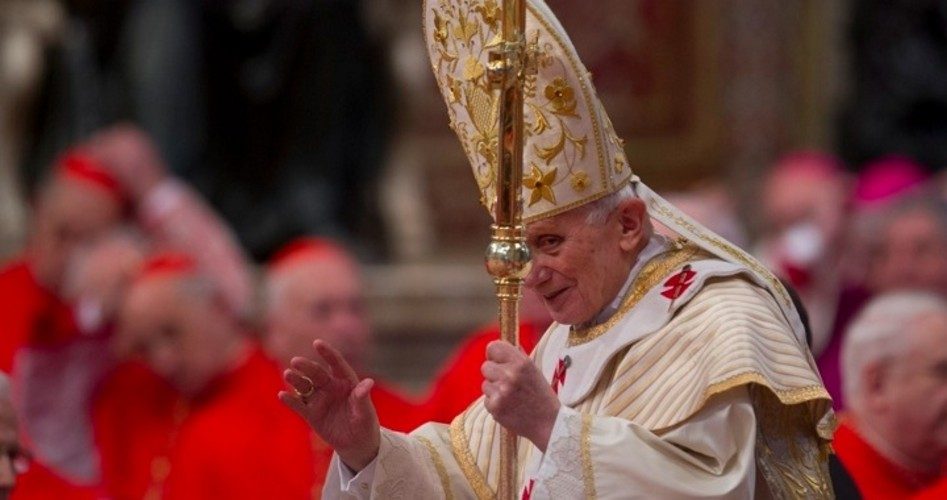
With the end of the pontificate of Pope Benedict XVI rapidly approaching, Vatican spokesmen on February 23 vehemently refuted reports originating in the Italian media that presented highly negative descriptions of the Holy See’s central administrative apparatus, known as the Curia.
Reuters news reported on Saturday that since Pope Benedict announced his impending resignation on February 11, “Italian newspapers have been full of rumors about conspiracies, secret reports and lobbies in the Vatican that they say pushed the pope to abdicate.”
Many of the negative statements about the Vatican were first published in La Repubblica, Italy’s largest circulation daily newspaper. An article in Wikipedia says of the paper: “Born as a radical/socialist newspaper, it has since kept a centre-left political stance.”
Vatican Secretary of State Tarcisio Bertone issued a statement reading:
It is deplorable that as we draw closer to the time of the beginning of the conclave … that there be a widespread distribution of often unverified, unverifiable or completely false news stories that cause serious damage to persons and institutions.
ABC News quoted from another statement by Vatican spokesman Father Federico Lombardi, who criticized the worldwide distribution of what he described as “unverified, unverifiable, or even false” news stories. “Lombardi accused the news media of meddling in the papal election — just as monarchs, nobles, and dictators sought to do in centuries past,” paraphrased ABC. “Now there is an attempt to do this through public opinion,” Lombardi said.
A Saturday report from BBC News stated that the La Repubblica story suggested that the pope had resigned soon after being presented with a dossier that revealed a network of Vatican priests, “united by sexual orientation” (presumably homosexual), who were being blackmailed.
BBC quoted from a response made by Father Lombardi in an editorial on the Vatican radio website: “Whoever has money, sex and power at the forefront of their mind sees the world through these parameters and cannot see beyond, even when looking at the Church.”
“Their view cannot look to the heights or go in-depth to understand the spiritual dimensions and motivations of existence,” he added.
Recognition of problems within the Vatican bureaucracy has not been limited to voices outside the Catholic Church. In a report about this latest controversy in its February 23 edition, the UK’s Guardian said that Cardinal Gianfranco Ravasi (the president of the Pontifical Council for Culture, who was made a cardinal by Pope Benedict in 2010) led the Vatican on meditations during the annual Lenten retreat last week, during which he denounced the “divisions, dissent, careerism, jealousies” that afflict the Vatican bureaucracy.
Cardinal Ravasi has been a visible figure in recent weeks and his name has surfaced in several online articles, including one from the Vatican website headlined: “Card. Ravasi leads Roman Curia on journey of faith.”
The Nigerian online newspaper Leadership even included him among its “frontrunners” as likely candidates to succeed Benedict, in an article headlined: “Ravasi, A Favourite To Be Pope?”
If history has shown anything, however, it is that speculations in advance of the choosing of a new Pope are more often than not wrong.
As the Vatican weathers this latest storm, it was reported on Monday that Pope Benedict had amended church law to allow his successor to be elected in a more timely manner than the usual procedure followed when a pope dies. The announcement, released though Father Lombardi, said:
I leave the College of Cardinals the possibility to bring forward the start of the conclave once all cardinals are present, or push the beginning of the election back by a few days should there be serious reasons.
BBC News citied its Vatican reporter, David Willey, who said that these changes reflect Benedict’s desire “to limit the power vacuum inside the Vatican to the shortest possible time after he leaves office on Thursday.”
Willey reported that it is now widely expected that the cardinals will convene their conclave to elect a new pope in about two weeks’ time — around the weekend of March 11.
Photo of Pope Benedict XVI: AP Images
Related article:


